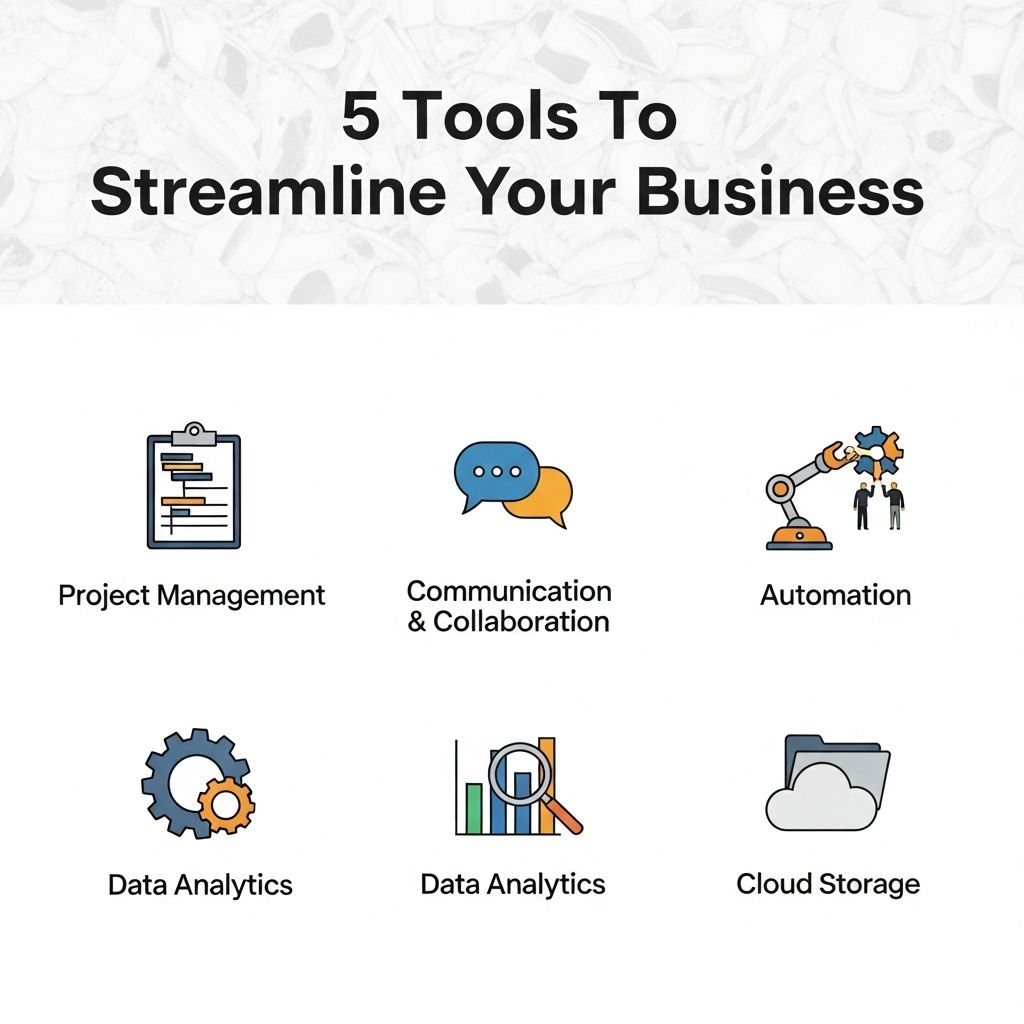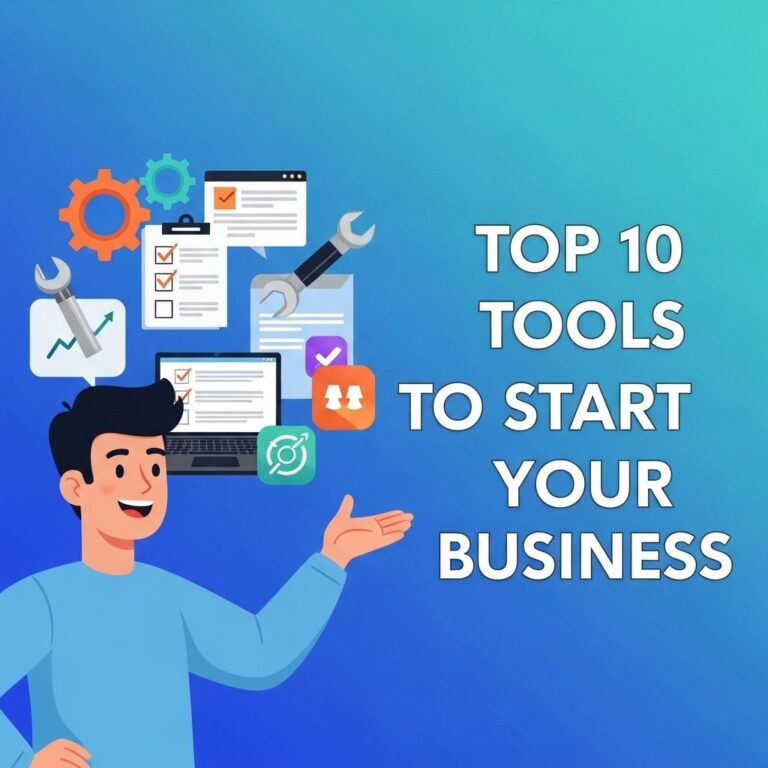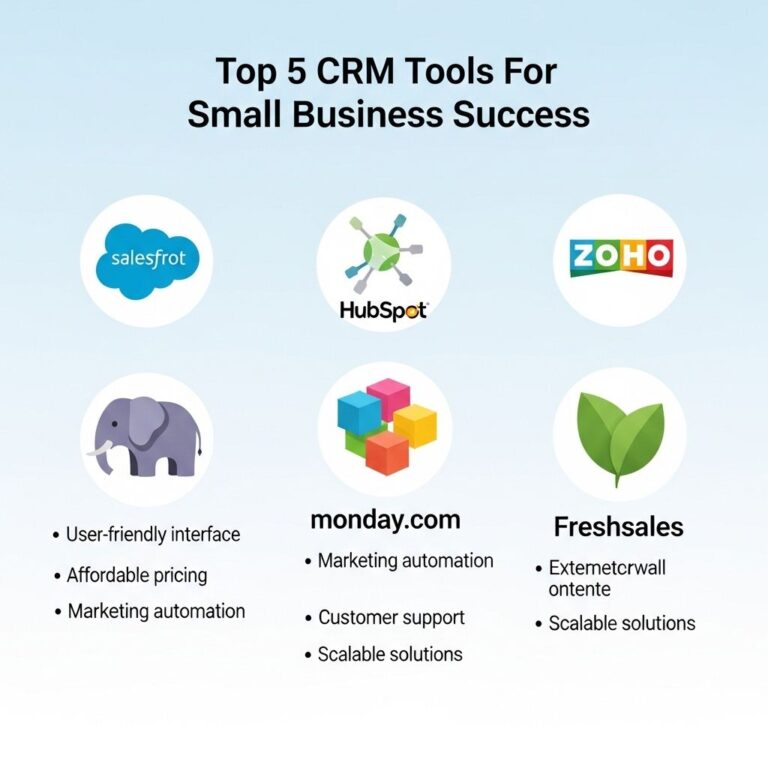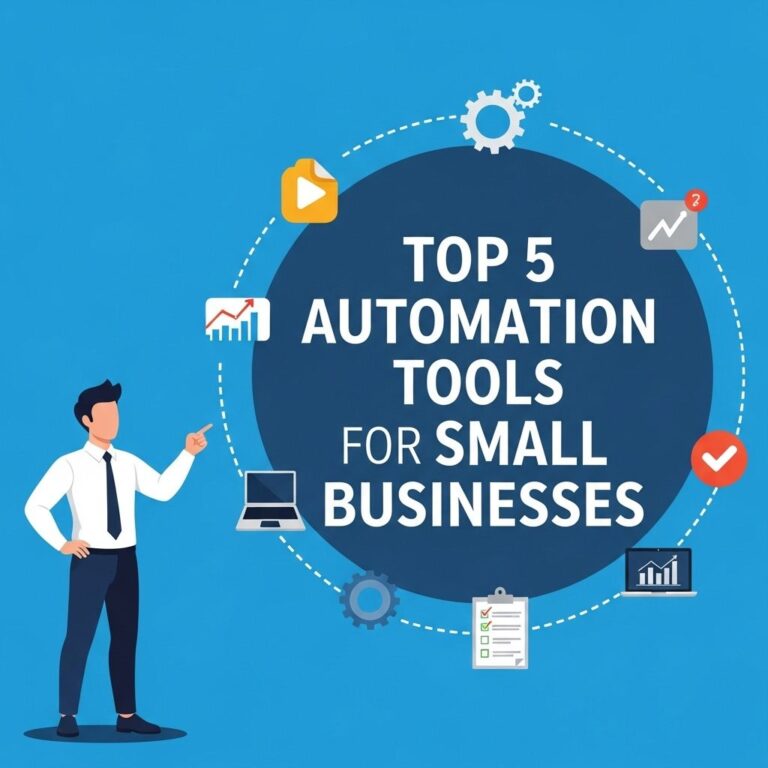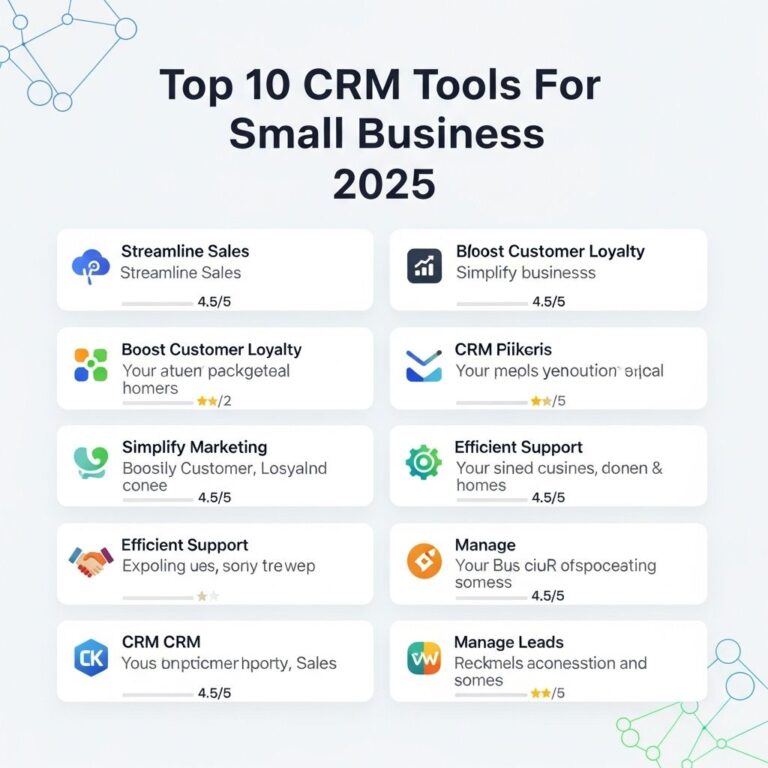In today’s fast-paced business landscape, efficiency is key to staying competitive. With the plethora of tools available, finding the right ones to streamline your operations can significantly improve productivity, enhance collaboration, and reduce costs. This article explores five essential tools that can help your business operate more smoothly and effectively, enabling you to focus on growth and innovation.
Table of Contents
1. Project Management Software
Project management software is essential for organizing tasks, tracking progress, and collaborating with team members. These tools help in planning projects, assigning responsibilities, and ensuring deadlines are met. Some popular project management tools include:
- Trello
- Asana
- Monday.com
- Basecamp
Benefits of Project Management Software
- Improved Collaboration: Facilitate communication among team members.
- Task Tracking: Monitor the progress of individual tasks and projects.
- Resource Allocation: Optimize the use of resources by tracking workload.
2. Communication Tools
Effective communication is pivotal in any business. Communication tools help streamline discussions, share information, and keep everyone on the same page. Here are a few tools worth considering:
- Slack: A messaging platform designed for teams that supports channels and direct messaging.
- Microsoft Teams: Integrates with Office 365 for seamless collaboration and video conferencing.
- Zoom: A reliable option for virtual meetings and webinars.
Features of Effective Communication Tools
| Feature | Description |
|---|---|
| File Sharing | Easily share documents and files among team members. |
| Video Conferencing | Enable face-to-face communication regardless of location. |
| Integration | Connect with other tools and platforms to enhance functionality. |
3. Customer Relationship Management (CRM)
A robust CRM system is essential for managing customer interactions, tracking sales, and improving client relationships. CRMs can help businesses understand their customers better and tailor services accordingly. Notable CRM tools include:
- Salesforce
- HubSpot
- Zoho CRM
Advantages of Using a CRM
- Centralized Data: All customer information is stored in one place.
- Enhanced Customer Service: Quickly access customer history to provide personalized support.
- Sales Insights: Analyze sales data and customer behavior for better decision-making.
4. Accounting and Financial Management Software
Managing finances is crucial for any business, and accounting software can simplify this process by automating invoicing, expense tracking, and financial reporting. Popular options include:
- QuickBooks: Comprehensive accounting software that caters to different business sizes.
- Xero: User-friendly online accounting platform.
- FreshBooks: Best suited for freelancers and small businesses.
Key Features of Accounting Software
| Feature | Description |
|---|---|
| Invoicing | Create and send invoices quickly and efficiently. |
| Expense Tracking | Automatically track expenses and categorize them for easy reporting. |
| Financial Reporting | Generate financial statements and summaries with just a few clicks. |
5. Automation Tools
Automation tools can save time and reduce errors by automating repetitive tasks. These tools enable businesses to streamline their workflows, allowing employees to focus on more strategic tasks. Some leading automation platforms include:
- Zapier
- Integromat (Make)
- Automate.io
Benefits of Automation Tools
- Increased Efficiency: Reduce the time spent on manual tasks.
- Consistency: Ensure uniformity and accuracy in processes.
- Scalability: Easily scale operations without proportional increases in workforce.
Conclusion
Adopting the right tools can make a significant difference in how your business operates. By leveraging project management software, communication tools, CRM systems, accounting software, and automation tools, you can streamline your processes, improve collaboration, and focus on what truly matters: growth and innovation. Evaluate your current systems and consider integrating these tools to enhance your business’s efficiency and effectiveness.
FAQ
What are the best tools to streamline business operations?
Some of the best tools include project management software like Trello or Asana, communication tools like Slack, customer relationship management (CRM) systems like HubSpot, accounting software like QuickBooks, and automation tools like Zapier.
How can project management tools help my business?
Project management tools help organize tasks, improve collaboration, track progress, and ensure that projects are completed on time and within budget.
What is the role of CRM software in streamlining business?
CRM software helps manage customer interactions, track sales, and automate marketing efforts, ultimately improving customer relationships and increasing sales efficiency.
Can automation tools really save me time?
Yes, automation tools can save time by automating repetitive tasks, allowing you and your team to focus on more strategic activities that drive growth.
How do accounting tools simplify financial management?
Accounting tools simplify financial management by automating invoices, tracking expenses, generating financial reports, and ensuring compliance with tax regulations.
What are the benefits of using communication tools in a business?
Communication tools improve team collaboration, enhance information sharing, reduce email overload, and facilitate real-time communication, which can lead to increased productivity.

